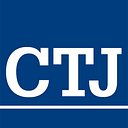Millions at Risk of Eviction (With Billionaire Wealth Soaring)
In 1969, poet and jazz artist Gil Scott-Heron recorded, “Whitey on the Moon,” a take-down of policymakers’ obsession with space race spending while Black communities faced inequitable wages and lack of access to health care and affordable housing.
“A rat done bit my sister Nell (with whitey on the moon),” he wrote.
This searing critique of economic inequality endures today, and we are reminded of it as we continually read dueling headlines about the pandemic economy. The rich are doing fine while lower-income families face job loss, the threat of eviction and food insecurity. Leaders in Washington have returned from their summer break with plans to debate another round of COVID-19 economic relief. Republicans are calling for a scaled-down package that doesn’t meet this moment. They are comforted by a stock market that has rebounded from its March lows and a jobs market that partly recovered its catastrophic losses.
In fact, President Trump in a tweet last week patted himself on the back, extolling the Dow Jones average reaching a new high. But the stock market is not the economy and focusing on stock valuations (and the corresponding increase in net worth for the top 10 percent of households who own 87 percent of all stock) ignores the financial reality for ordinary people. The same day the stock market reached new highs, a horrific video showed Houston families being evicted from their homes in the sweltering heat.
One in eight households do not have enough food to eat (with billionaire wealth soaring).
One in four adults cannot pay their rent (with billionaire wealth soaring).
Nearly 30 million people are unemployed (with rich people getting richer).
More than eight million cannot afford the basics: housing, food, transportation (with the stock market soaring).
Thousands of small businesses have closed their doors permanently (with billionaire wealth soaring).
CARES Act provisions including extended unemployment and direct cash payments have long expired (with the rich getting richer).
The United States’ failed response to the health and economic crisis has cost working people their lives and their livelihood. The GOP COVID-19 relief plan would put a bandage on a festering wound. A Democratic plan released in May (the HEROES Act) would better meet this moment with direct payments to families, increased unemployment insurance benefits and aid to states so they can prevent drastic cuts to education and other critical services.
Meeting this moment, of course, requires policy discourse that focuses on ordinary people. The rich are doing alright.
For a recent critique on tax policy and racial inequality, check out Verses and Voices: Poems for the Resistance presented by Tax March and Color of Change.
